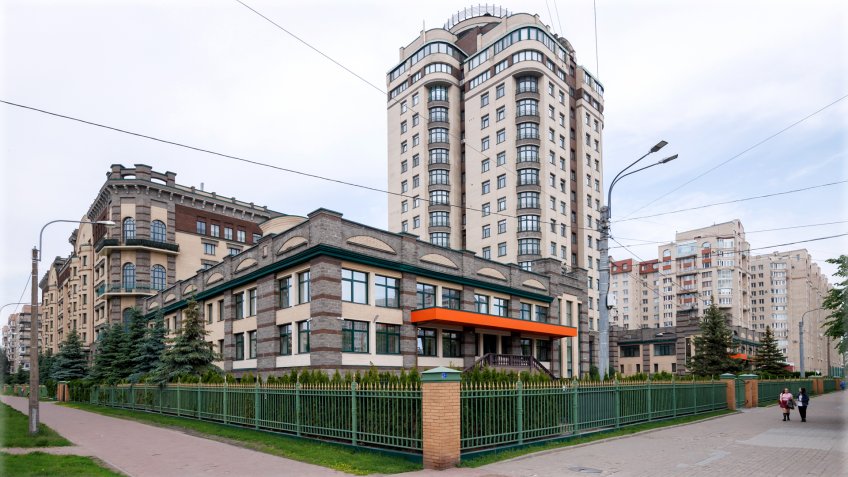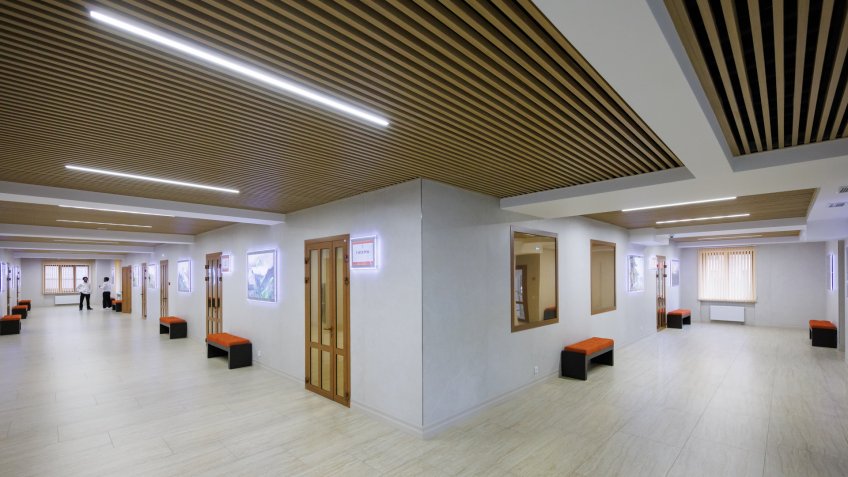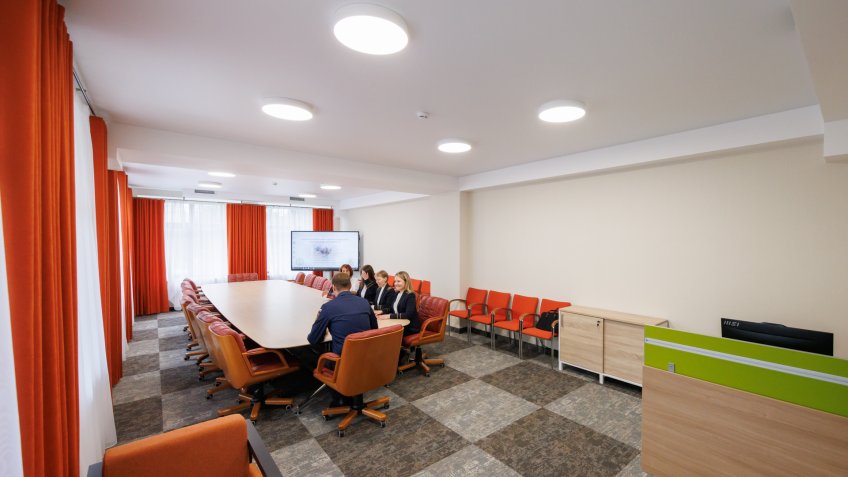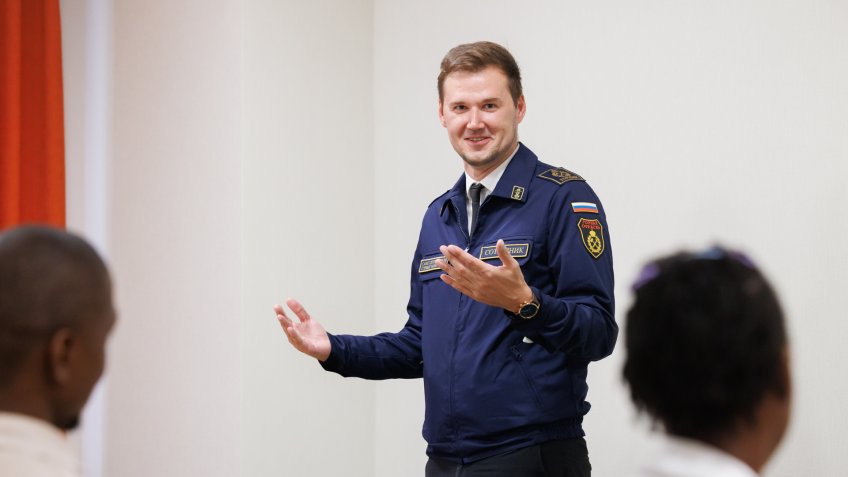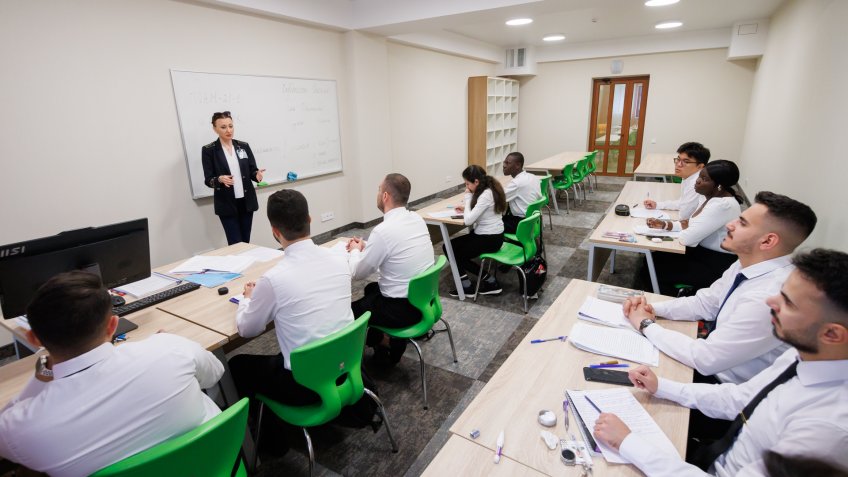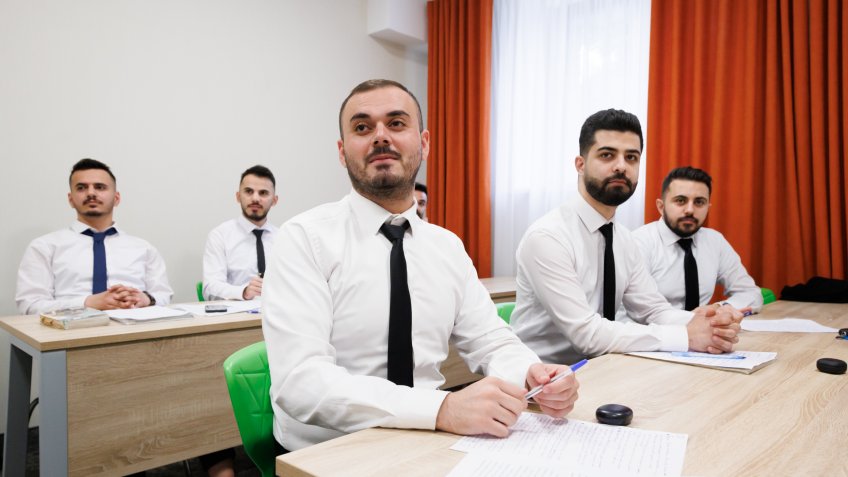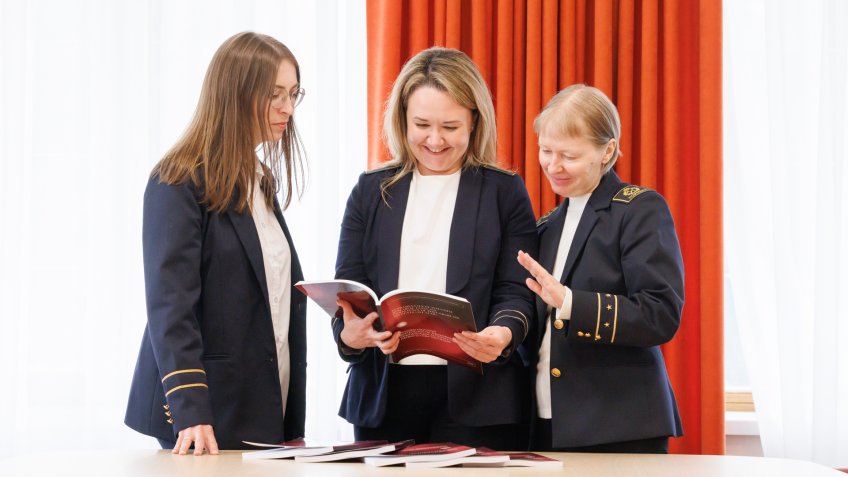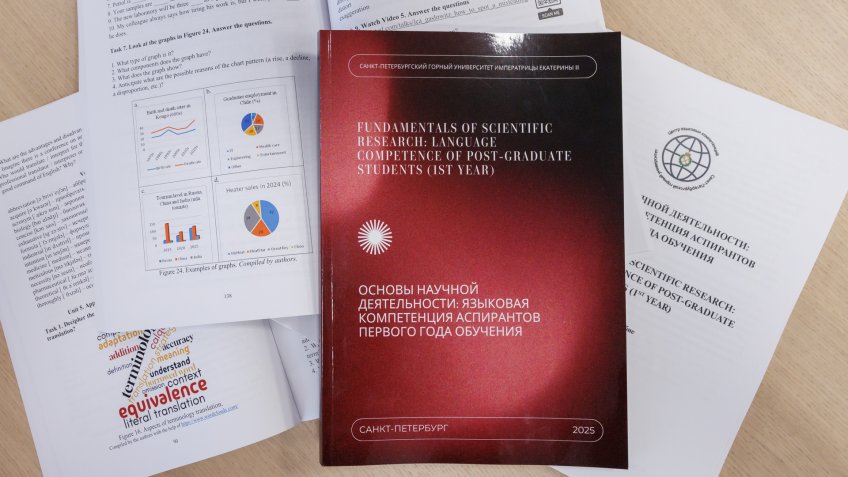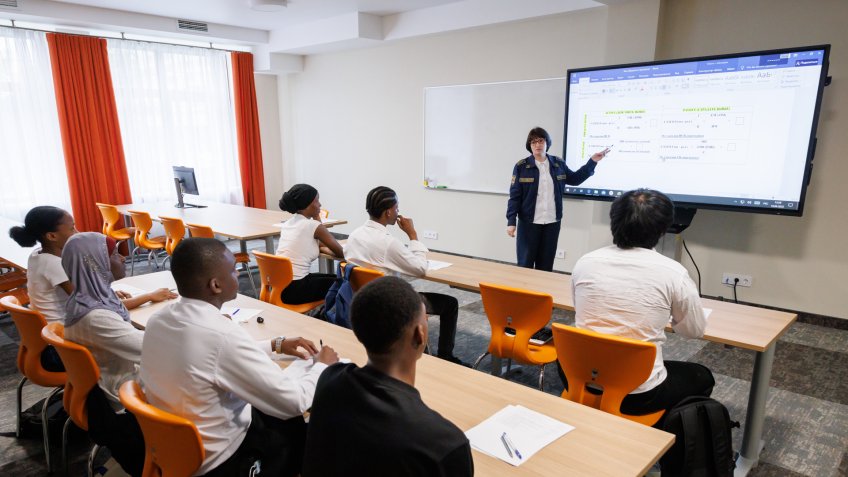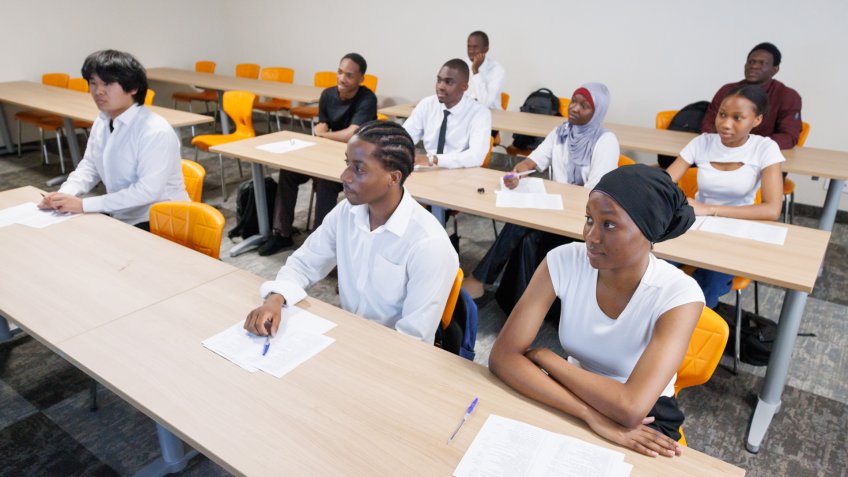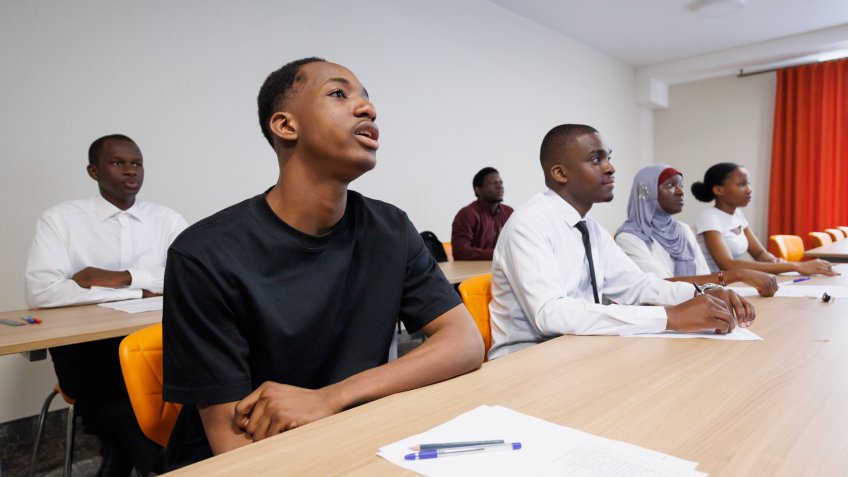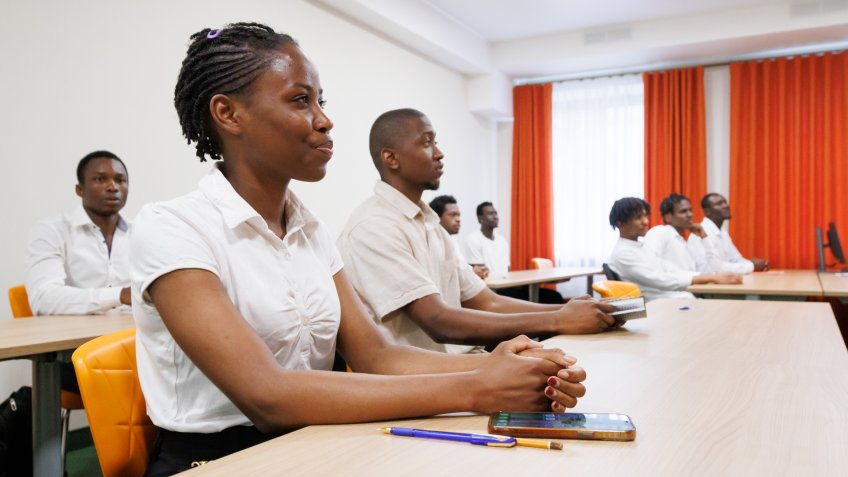How and Whom They Teach at the Language Competence Centre of Empress Catherine II Saint Petersburg Mining University
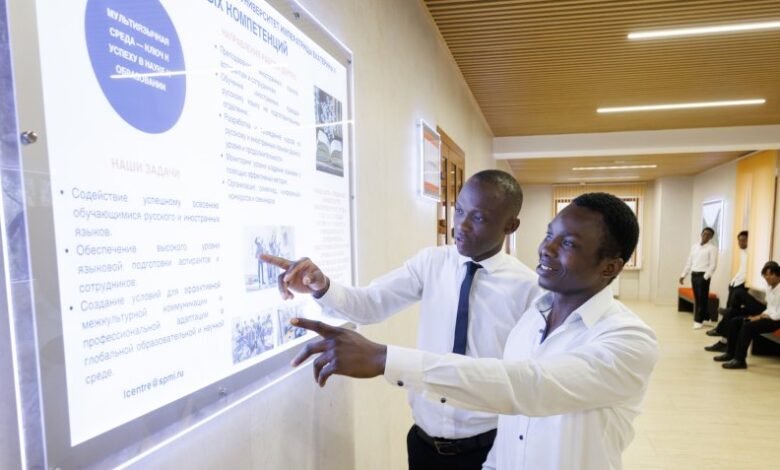
— Here’s English for you. Learn it from cover to cover — I’ll come and check!
— Why do we need English?
— We’re going to rob an embassy!
This was the motivational speech delivered by the Assistant Professor to his “wards” in the cult Soviet comedy Gentlemen of Fortune. The takeaway: even criminals, bandits, and other “unconscious” citizens acknowledged the authority and potential of learning a foreign language.
-I know English. I’ll get myself a classy suit and head to Yalta!” dreamed Kosoy, portrayed by Savely Kramarov.
Today, few would argue that knowledge of English is a vital skill for any educated person. And for scientists, it is absolutely essential to stay current with the latest research, to read and understand academic literature, and to engage in dialogue with colleagues at international conferences and seminars.
At Empress Catherine II Saint Petersburg Mining University, significant attention is paid to language learning, with a particular focus on English.
In June 2025, the university’s Language Competence Centre moved into a standalone building on Nakhimova Street, across from Pribaltiyskaya Square. This modern, multifunctional space provides all the necessary conditions not only for effective and comfortable language study but also for communication, intercultural exchange, and thematic events. The two-floor facility features eight classrooms and a conference hall where postgraduate students and faculty can study or improve their English and Chinese, while international applicants can learn the language of Pushkin and Dostoevsky. All rooms are equipped with modern multimedia tools. Interactive displays and other digital technologies are widely used in lessons.
The establishment of a dedicated building marked an important step in the implementation of one of the university’s strategic goals—the creation of an open, multilingual educational environment that brings together students, faculty, and international citizens.
Currently, the Centre serves around 130 postgraduate students, 12 faculty members, and 90 students enrolled in the preparatory program. Classes are conducted by three instructors. Forpost spoke with the Centre’s director, Vyacheslav Zyrin, to learn more about how the educational process is organized at the Language Competence Centre.
— The Language Competence Centre opened six months ago. Could you tell us about its goals and objectives?
— The Language Competence Centre is an educational unit of the Mining University, and its primary goal is to create an open, multilingual educational environment that brings together students, faculty members, and international citizens preparing to enroll at our university.
We aim to cover the entire university community. For students in various academic programs, we develop English language curricula to ensure they are able to confidently participate in international conferences and research internships, engage in scientific projects, and apply for grants. We also provide English-language instruction to postgraduate students so they can present their research at international conferences, deliver lectures, and read and write scientific articles in English.
Naturally, we also teach Russian to international applicants. They spend a year studying in our preparatory program and then proceed to enroll at the university. We also teach Russian to international postgraduate students. Additionally, we offer Chinese language instruction for those who already have a good command of English, and there is an option to study both English and Chinese in parallel.
We’re currently developing new programs for general students who simply want to improve their English, and these will launch in September.
Is there anything offered for faculty members?
– Starting in September, an MBA program will be launched for African specialists, and for the faculty members involved in this program, we have developed a course titled “Scientific and Technical Communication.” The aim here is not merely to improve their general English proficiency, but to develop language competence that allows them to confidently deliver lectures and design course syllabi. The first group of 12 participants is already completing their training. We plan to expand this course to include all instructors who teach in English.
– Future engineers need to know not just conversational English, but technical English. And each specialty comes with its own specific terminology. How does this influence your teaching methods?
– Absolutely, our instruction is tailored to engineering education. Their vocabulary must be technical and field-specific. English is often considered an “easy” language, but when it comes to technical terminology, each discipline has its own lexicon, and that poses a considerable challenge from a teaching perspective. Again, our goal is not only to teach students to speak fluently in everyday English, or to focus on phonetics, grammar, and general vocabulary. Our learners—whether they are academic staff or instructors—must master the language at a technical level. Language competence means being able to confidently present one’s scientific research at an international conference, deliver a course of lectures, and read and write scientific articles in English.
To support young researchers in developing professional communication skills in English, we published our own postgraduate-level textbook this year for the first time.
– Tell us more about it. What prompted the need for such a publication?
With the educational reform currently underway at our university, the entire postgraduate training system has been transformed. We felt it was necessary to create a textbook specifically tailored to the goals and objectives of our institution.
The fact is, existing textbooks are typically focused on general English or, at best, technical English, but they often use broad, non-specialized content. Meanwhile, we have our own unique focus—mining, engineering education, and its particular linguistic demands.
Our Centre’s instructors developed a study guide titled “Fundamentals of Scientific Activity: Language Competence for First-Year Postgraduates.” The textbook covers all aspects of scientific work—from writing articles to participating in international conferences. It was created as part of the university’s advanced professional training program and is already being used in the educational process.
– Which version of English is used as the foundation at the Language Competence Centre?
We are actively developing instruction in Global English (also referred to as World English or International English), which is the generally accepted standard in modern academic communication. It is a generalized, neutral form of English that avoids strong regional features—whether British, American, Australian, and so on. This linguistic standard allows Russian researchers to effectively collaborate with colleagues from China, Iran, India, and African countries—our strategic partners in the scientific sphere.
– How do you assess the results for each group—faculty, postgraduates, and prospective students?
Language proficiency is the main criterion. For postgraduate students, the most telling result is the candidate’s exam, where they are expected to present their research findings.
This year, we also launched a video lecture competition called Impulse of Knowledge. Its purpose was to encourage postgraduate students to explain their research topic—or the topic of a future lecture course—in a clear and accessible way in English, within a three-minute video. This format demonstrates how well-developed their language competence is and how effectively they can apply it in practice.
International applicants must reach a B1 level in Russian, meaning they should understand both spoken and written language. But more importantly, they must be able to engage in the learning process—comprehend terminology and scientific expressions in their field of study. The goal is for them to integrate easily into the academic environment from their first year: to know how to interact with professors, understand the subjects being taught, and navigate the educational system.
In addition, the Centre is developing a specialized English proficiency testing system tailored to the engineering field.
– This summer, the Centre will celebrate its first graduation—90 students—from the preparatory program. Tell us more about them.
These are applicants who came to study at the Mining University from countries such as Mali, Sierra Leone, Togo, Cameroon, Benin, the Central African Republic, Tanzania, as well as from China, Syria, and Mongolia. Most arrive without any knowledge of the Russian language. As with learning any foreign language, we start with the alphabet. The challenge is that we only have nine months. But the students are highly motivated, and they are immersed in a Russian-speaking environment, so there is no choice—whether to learn or not is not an option.
The first semester is dedicated to familiarizing them with Russian. In the second semester, we begin introducing subject-specific vocabulary—mathematics, physics, computer science. For students in economics, that includes history and social studies. They attend four class periods per day. Each student is assigned a faculty advisor who monitors their progress.
We also include cultural development components—organizing city tours and helping them understand the place where they will live during their university years.
Our primary goal is to ensure that preparatory program students speak Russian fluently. We care deeply about each of them, and we want them to feel comfortable and confident in their studies.
How would you assess the level of English among today’s youth?
It’s quite high. In the academic environment, they don’t have a choice—they simply cannot afford not to know English. They must be part of the global educational and scientific community, capable of reading academic articles in English. There’s no way around it, which is why their motivation to learn is strong.
And for those who want to improve their language skills next year, no one will be turned away. This can be done through the Additional Competence Program (DPC).
– Who does the Centre collaborate with?
-The President of the Nedra Afriki Consortium, Rector of the Admiralty University of Nigeria, Omaji Paul Omojo, teaches in our Scientific and Technical Communication course for lecturers. This course is specifically designed for citizens of the African continent. He is exceptionally well-versed in what future instructors need to know—from language to cultural specifics. A dedicated part of the course focuses on precisely these issues.
Without a doubt, we will continue to collaborate with African countries and China. For Chinese nationals, we are developing a special Russian language course tailored specifically to Chinese students.
We are also planning to launch a professional development program for instructors of Russian as a Foreign Language (RFL), particularly those teaching abroad.
Source link

